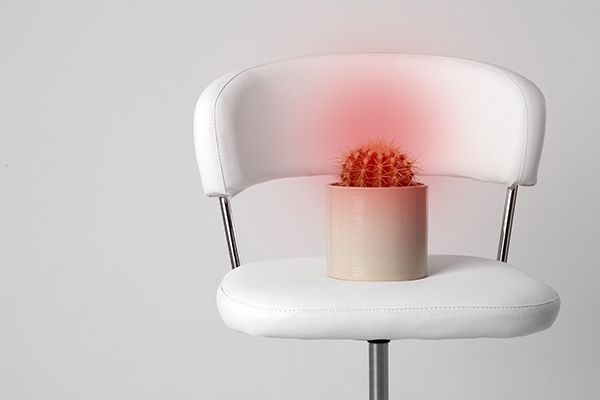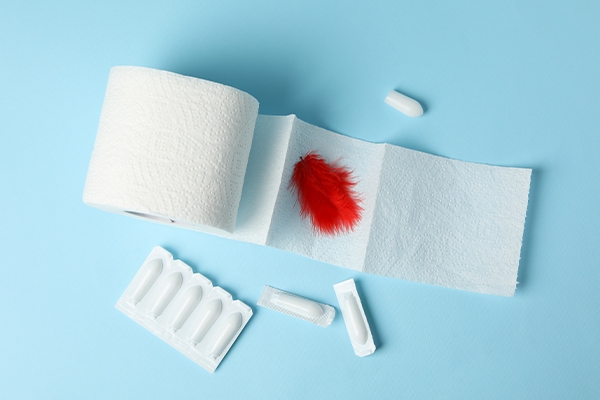Sitting All Day in the Office Can Cause Hemorrhoids? Here Are The Facts!

Hemorrhoids affect people of all ages. Even young office workers like Via can experience them because she sits too long. Be aware of the symptoms and know how to prevent them!
Via, an active and enthusiastic bank teller, never thought that her job, which required her to sit for a long time, could end in hemorrhoid surgery. Cases like Via's are not uncommon.
Sitting for hours, minimal mobility, and a low-fiber diet are a combination that triggers the appearance of hemorrhoids.
But is it true that office work can be the main cause of hemorrhoids? Let's understand it more deeply.
What are hemorrhoids?

Everyone is born with a hemorrhoidal plexus, which are veins around the anus and rectum. However, if these structures become swollen, inflamed, or protrude from the anus, causing pain or bleeding, hemorrhoids become a disease, or piles.
Hemorrhoids can be painful and uncomfortable and can cause rectal bleeding. How do hemorrhoids swell and enlarge?
Hemorrhoids swell and enlarge due to increased pressure on the veins around the anus and rectum. This condition is often caused by straining during bowel movements, chronic constipation or diarrhea, pregnancy, obesity, or lifting heavy objects.
Enlarged hemorrhoids can cause symptoms such as bleeding, itching, and burning around the anus.
What are the symptoms of hemorrhoids?

There are two types of hemorrhoids: internal and external. Internal hemorrhoids are rarely painful (and usually not felt) until they see blood on toilet paper or stool or in the toilet. These are signs of rectal bleeding.
Meanwhile, external hemorrhoids have symptoms, such as:
- itching anus;
- a hard lump near the anus that feels sore or painful;
- pain or tenderness in the anus, especially when you sit;
- rectal bleeding during a bowel movement.
Prolapsed hemorrhoids can be painful and uncomfortable. You may be able to feel them protruding from the anus and gently push them back in.
What causes it?

The exact cause of hemorrhoids is not yet known for sure. However, sitting too long is thought to be one of the causes.
The pressure from sitting can cause blood vessels in the buttocks to swell or become inflamed. That is why office workers are at higher risk of experiencing hemorrhoids.
To reduce this risk, do several things, such as:
1. Take breaks as often as possible
Sitting too long increases the risk of hemorrhoids but also other chronic conditions, such as heart disease. That is why stand up every 30-60 minutes and do some light stretching for 2-3 minutes. This improves blood circulation and reduces pressure in the anal area.
Tip: Set an alarm or use a reminder app to stand up and move every hour.
2. Use a pillow
Sitting on a donut-shaped pillow can help treat or prevent hemorrhoids. This pillow allows you to sit comfortably and relieves pressure on your anus.
Hemorrhoids are caused by problems with the veins in your anus, and constant pressure from sitting can make the situation worse. A donut-shaped pillow allows you to sit for long periods without putting pressure on these veins.
3. Consume high-fiber foods
Eating high-fiber foods is essential for anyone who wants to avoid hemorrhoids. By eating high-fiber foods, you will have more regular bowel movements, which minimizes the risk of hemorrhoids.
To achieve your fiber needs, consume 25-30 grams of fiber per day. The best sources are fruits (papaya, bananas, apples), green vegetables (spinach, broccoli), whole grains, oatmeal, and beans.
4. Stay hydrated
Hydration is essential in preventing hemorrhoids. Staying hydrated can help maintain your circulatory system healthy, reducing the chances of increased pressure on the veins near your rectum and anus.
Drinking enough fluids every day can also help prevent constipation. Straining while constipated is a common risk factor for developing hemorrhoids.
Experts recommend drinking about 2 liters of water daily (about eight glasses) to stay hydrated. Carrying a water bottle to work is a good way to remind yourself to drink enough water.
5. Have good bathroom habits
- Limit your time in the toilet. If you haven't had a bowel movement in a few minutes, don't delay or force it. It's better to go out and try again later. Try to get used to going to the bathroom at the same time every day so that your body has a regular rhythm.
- Don't hold in your bowel movements too often. When you feel the urge to go, do it immediately. Delaying it just because you're waiting for a more comfortable place can cause you to strain and add pressure to your blood vessels, which can worsen hemorrhoids.
- Wear cotton underwear. Wear loose, soft underwear to keep the area ventilated and moist. This helps reduce moisture that can worsen hemorrhoid symptoms.
**
Hemorrhoids can affect anyone, even young and active people. Sitting for long periods, a low-fiber diet, and lack of movement are the primary triggers that can be avoided with a healthy lifestyle.
Do not delay consulting a doctor if you notice any symptoms, such as itching, pain, or bleeding. Early treatment can help prevent the condition from worsening.



